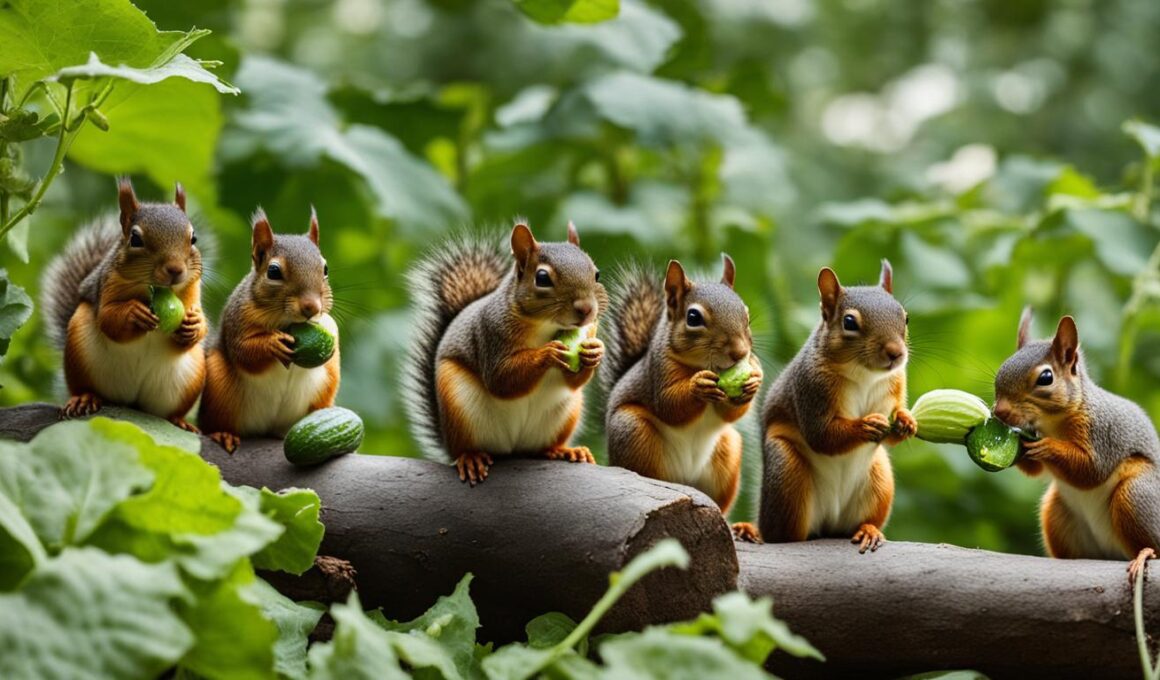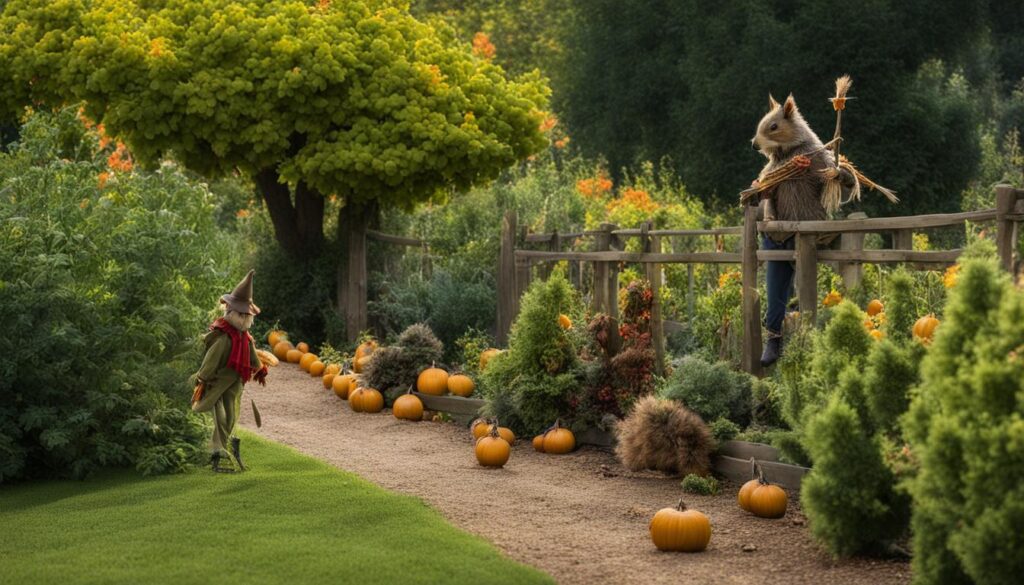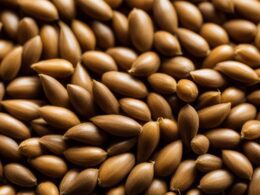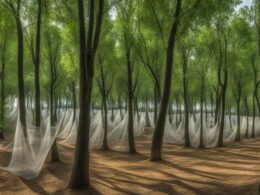Are you wondering if squirrels have a taste for cucumbers? While they may not be their top food preference, squirrels are opportunistic eaters and can occasionally indulge in cucumbers when given the chance. If you’re a gardener, these mischievous creatures can cause considerable damage to your beloved plants, fruits, and vegetables. It’s essential to be aware of the signs of squirrel activity in your garden to protect your precious greens and enjoy a bountiful harvest.
Signs of squirrel activity in your garden may include shallow digging spots in your planting beds, bite marks or missing fruits, nibbled seedheads, container digging, partially eaten flowers, or even missing plants or seedlings altogether. Spotting these signs early on can help you take prompt action to protect your garden from further damage.
So, how can you safeguard your garden against these persistent little foragers? Fortunately, there are various strategies you can employ to keep squirrels at bay. Removing attractants like fallen fruits and seeds, using natural repellents such as capsaicin or predator urine, setting up decoy food stations, or scaring them away with motion-activated sprinklers or predator decoys are all effective methods for deterring squirrels. Additionally, you can exclude them from your garden by using netting or fencing as a physical barrier.
It’s worth noting that trapping squirrels is generally not recommended and may even be regulated in some areas. Instead, focus on creating an environment that is less appealing to squirrels by removing easily accessible food sources and implementing deterrents that make your garden less inviting to these furry visitors.
Stay tuned for the following sections of this article, where we will provide you with further tips and tricks to protect your garden and keep squirrels away. With a little planning and proactive measures, you can enjoy a thriving garden without pesky squirrel interference.
Tips for Keeping Squirrels Away from Your Garden
When it comes to protecting your garden from squirrels, there are several effective methods you can try. By implementing these strategies, you can keep squirrels away and preserve the beauty of your plants and flowers.
One of the simplest ways to keep squirrels at bay is to cover your plants and bulbs with netting or fencing. This physical barrier prevents squirrels from accessing your precious vegetation, ensuring their safety.
Natural repellents and deterrents can also be highly effective in warding off squirrels. Consider sprinkling hot pepper flakes, onion, garlic, or chili powder around your garden. These strong odors will deter squirrels from approaching. Additionally, predator urine, available at garden centers, can create a sense of danger for squirrels, causing them to avoid your garden.
Ultrasonic deterrent devices are another option to consider. These devices emit high-frequency noises that are unpleasant to squirrels, encouraging them to stay away from your garden.
Utilizing dogs as natural deterrents can be an effective strategy as well. Squirrels are naturally wary of dogs and will likely avoid areas where dogs are present. If you have a canine companion, allow them to patrol your garden or place a dog-shaped decoy to create the impression of an active canine presence.
Companion planting can also help protect your garden from squirrels. The strong scents of marigolds, garlic, or alliums can deter squirrels from feasting on your plants. Consider planting these alongside your vulnerable crops to create a natural barrier.
Motion-activated sprinklers provide a surprising blast of water when they detect movement, startling squirrels and encouraging them to flee. This can be a highly effective method, especially if used strategically in areas where squirrels frequently visit.
Lastly, consider feeding and watering squirrels in a separate area away from your garden. By providing them with an alternative food and water source, you can divert their attention away from your precious plants.
By implementing these tips and utilizing a combination of methods, you can effectively keep squirrels away from your garden and protect your plants from damage. Experiment with different strategies to find what works best for your specific situation and enjoy a squirrel-free garden.
Conclusion
In conclusion, preventing squirrel damage and protecting your garden requires a combination of proactive measures and effective strategies. While squirrels may occasionally feed on cucumbers, they have a variety of food preferences, so it’s important to understand their behavior and implement deterrents accordingly.
By removing food sources such as fallen fruit and seeds, you can discourage squirrels from taking an interest in your garden. Additionally, utilizing natural repellents like capsaicin or predator urine can make your garden less appealing to these furry critters.
Providing alternative food sources, such as designated feeding stations, can also redirect squirrels’ attention away from your garden. This way, they will have their own source of nourishment, minimizing the likelihood of them causing damage to your plants.
Remember, each squirrel may respond differently to various tactics, so it may be necessary to experiment with a combination of strategies to find what works best for your specific situation. By understanding squirrel behavior and taking proactive measures, you can protect your garden from squirrel damage and enjoy the beauty of your plants and vegetables.
Can Squirrels Eat Cilantro?
Yes, squirrels can safely eat cilantro without any risk of cilantro toxicity in cats. Cilantro is non-toxic to most animals including squirrels and can actually provide beneficial nutrients for them. It’s a safe and natural option for squirrels to enjoy as part of their diet.










